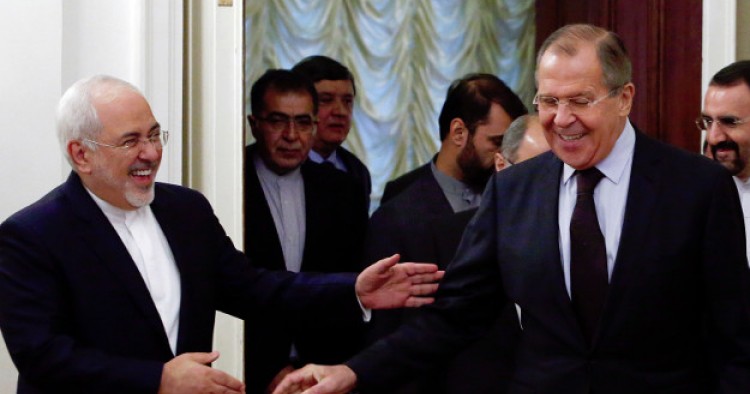Iran, Turkey and Russia have reached an agreement to create “de-escalation zones” in Syria, Iranian and Russian media reported. According to Fars News Agency, an outlet affiliated with the Islamic Revolution Guards Corps (I.R.G.C.), the three guarantor states will form a joint commission within five days to determine the boundaries of disarmament and security zones as well other technical matters related to the implementation of the agreement. The mapping of security regions will be finalized by May 22. The plan includes regions in five Syrian provinces: Homs, Idlib, Quneitra, Daraa and Rif Damashq. The report adds that the three sides have agreed to continue the fight against the Islamic State and its associated militant groups, including in the soon-to-be-established security regions.
The draft agreement was signed at the final day of talks in Kazakhstan, which is held to foster negotiations between the government of Bashar al-Assad and Syrian opposition groups.
According to Tasnim News Agency, another I.R.G.C. outlet, the Syrian government has expressed support for the security zones plan.
Comment: A lack of consensus among Syrian opposition groups and the exclusion of other key external actors on the creation of Russian-sponsored security zones may hinder the plan’s successful implementation. As Russia, Iran and Turkey were signing the agreement in Astana today, representatives of some Syrian opposition parties walked out of the summit in anger, protesting Iran’s participation in the deal.
Another problem is that while the three sides agreed to continue fighting against the Islamic State and other “terrorist” groups, Turkey and Iran have a very different view of which groups fighting in Syria are terrorists. Tehran often paints all militant groups fighting against the Assad regime as terrorist, including ones supported by Ankara.
Furthermore, while Tehran and Moscow talk about “de-escalation” of violence at diplomatic forums, they both are supporting the Syrian Army’s ongoing offensive against all opposition militant groups, particularly in Holms and Idlib.
The Middle East Institute (MEI) is an independent, non-partisan, non-for-profit, educational organization. It does not engage in advocacy and its scholars’ opinions are their own. MEI welcomes financial donations, but retains sole editorial control over its work and its publications reflect only the authors’ views. For a listing of MEI donors, please click here.













